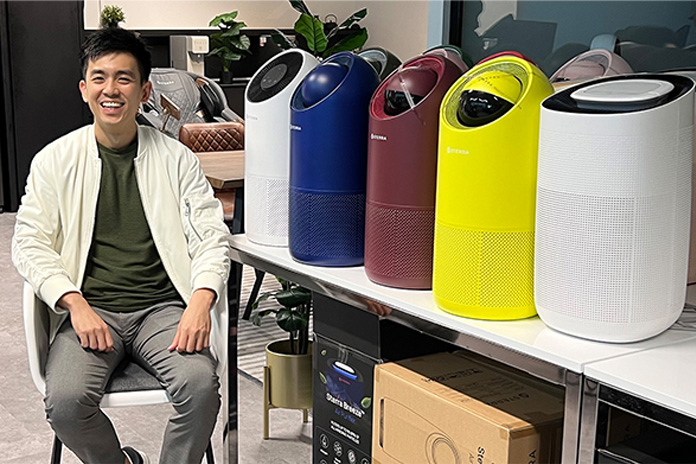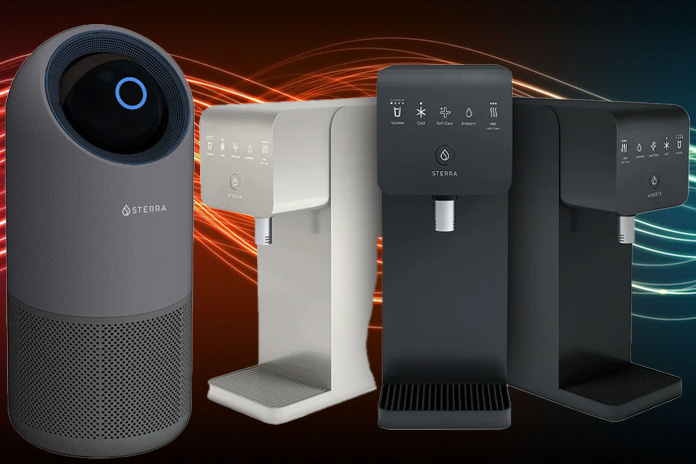
THE US-China conflict that began with the Trump-era trade war stirred up discussions of decoupling, a forced disconnect between the world’s two largest economies.
While there has been some evidence of genuine partition, thus far it has mostly been a media clickbait smokescreen.
In reality there was no economic decoupling, Chinese goods are sent to other countries, who change the label and then send them on to their usual destinations, in a practice known as white labelling.
By Any Other Name
By no means is this rebranding strategy considered taboo. On the contrary, local vendors can often sniff out business inefficiencies and deduce effective product market fits. It also allows companies to minimise upfront costs by avoiding design and R&D, quickly test business models, and expand their product range.
Obvious examples include the seemingly endless supply of event-themed tote bags and T-shirts, supermarket brand vodka that doubles as paint stripper, and the water bottles carried by various department stores to name a few.
Sterra, a Singapore-based e-commerce business, operates at the interface of global market tensions and provides a key example of how early success can be born from such strategic business models.
The Fruits of Persistence
Co-founder Strife Lim sits alone in Sterra’s office, surrounded by a multi-coloured array of gadgets. It’s work-from-home day for the rest of the staff, so the youthful entrepreneur with the spiky hair and easy smile has the pick of the chairs in the large, open space.
Sterra’s health and wellness-oriented product range includes water and air purifiers, dehumidifiers, massage chairs and mattresses, and is currently most popular with the 30–50+ crowd.
While their water purifiers come from Korea, many of Sterra’s other products come from China. Now with a flowing revenue stream, they can design some of their own products, such as their new water purifier.
Their meeting room also doubles as a product ad studio, frequented by influencers. The 3-year-old company has one physical showroom, but roadshows are the primary way potential customers can experience their goods in person, particularly the massage chairs, which require a test drive. Sterra also has a large online customer service team to help with any product issues.
The company is currently focusing on improving existing products, such as offering a mini, travel-friendly version of their air purifier, while they consider overseas expansion to the UK, US, Australia, and Malaysia.
ALSO READ: Designed for style and comfort
Secret Sauce
Sterra has spent a staggering S$11 million on marketing alone. Social media has made marketing cheaper and easier to manage, as it readily provides performance-related data for ads or products. Strife professes that social media also makes running the business more fun and interesting as it allows them to use more creativity in reaching their audience.
“More ad- and product-related data offers more control,” explains Strife.
Sterra merchandise has mass market appeal. True to their name, they focus on functional products that offer users real, quantifiable benefits in their health and life, at a competitive price.

Finding an Edge
Strife explains that analysis of their competition was crucial to their development. Due diligence revealed their competitors’ high price margins, as well as their poor customer service and marketing standards.
Rather than focusing purely on cutting costs, their studies of expensive brands revealed that many of competitor products’ features were underutilised. By offering clients only the most useful or popular features, their streamlined gadgets could still satisfy without breaking anyone’s piggybank.
Hence their core focus was to make household products affordable enough for most people to experience. Beyond price points, good customer service and optimising delivery costs have been vital to providing a good product.
The team conducts rigorous product and market research to determine potential for margin, product brand alignment, as well as their edge in terms of experience and expertise.
ALSO READ: AI — an enabler not a solution!
Sterra Origins
Having known one another since Secondary 3, the unrelated Lims’ mutual love of football kept Chris and Strife in touch over the years. Their first venture 9 years prior to Sterra was an online e-commerce venture inspired by RedMart, who had just started their online store.
Their inexperience showed as they focused on trying out their big ideas, failing to appreciate the devil that lurked in the details. But this haphazard approach allowed them to test the validity of their ideas.
With their creative juices still flowing, they tried out several other business ideas; from the Squatty Potty venture to selling T-shirts online, quickly making their own brand and distributing globally.
Amid their success they learned about marketing and product market fit, building a team, and proper management of business operations. They decided to try selling locally, mostly for fun at first, but decent traction encouraged them shift their focus to the domestic market, anticipating demand in the health and wellness sector.
While some budding entrepreneurs may not believe the Singapore market is big enough to match their ambitions, consider that you may find your greatest edge close to home.





















